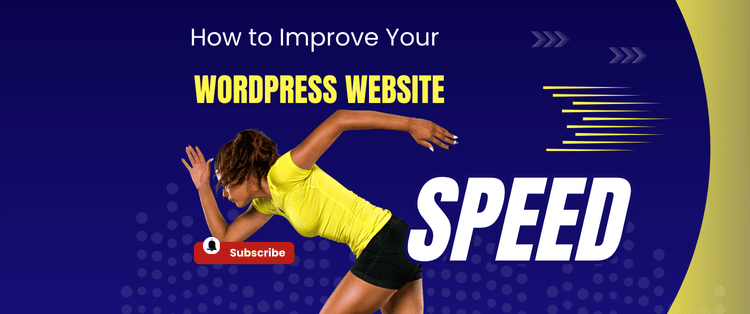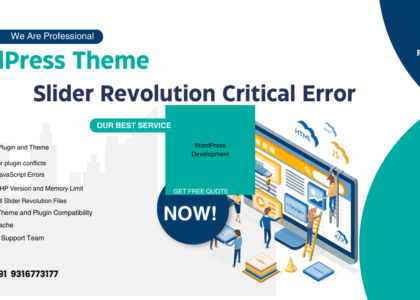The study shows that users are more responsive towards the website which load less than 3 seconds while the website which loads more than 8s users turn down and move to another website.
Slow loading times harm more than only conversions. Google’s studies indicate that when page load time rises from one to three seconds, consumers are 32% more likely to depart. Data from Unbounce shows that 70% of consumers would rather purchase from quicker-loading websites.
Speed also affects search ranks. Page speed is a ranking criterion for Google, hence, a slow-loading WordPress site reduces your visibility. Site owners should hasten their WordPress sites if they want to increase user happiness and business performance.
Improving the speed of your WordPress site does not call for sophisticated technical knowledge. Simple solutions, such as image optimization, are effective. Advanced methods like Gzip compression can cut file sizes by as much as 70%. This article addresses practical ground solutions. Your page’s one-second delay can reduce conversions by 7%; these improvements will help avoid that loss.
Begin with Quick Wins to Accelerate WordPress
There are some simple tweaks that can increase the speed of your WordPress website and you don’t even need any technical knowledge for this.
Improve photos without sacrificing quality
Large photos can sometimes cause WordPress pages to run slowly. Digital camera and smartphone photos are too large for web display. You can reduce image sizes by 50% or more while maintaining their sharpness.
- Microsoft Paint on Windows or Preview on Mac handles manual picture resizing quite well.
- You might also include WordPress plugins such as ShortPixel Image Optimizer or Smush that automatically compress photos.
These methods reduce the size of your photos without compromising their appearance.
- While PNG fits basic graphics or photos requiring translucent backgrounds, JPEG is ideal for vibrant images.
- You should also limit upload sizes so your site automatically resizes huge images during upload.
Choose a simple WordPress theme
Your site’s speed is influenced by your theme selection. While they may look wonderful, themes with elaborate layouts and beautiful effects may require more code, which could cause pages to load more slowly.
Multiple tool speed tests—GTmetrix, Pingdom, PageSpeed Insights, and TTFB—show these themes operate exceptionally well:
- Astra
- Scored nearly perfect (100, 98, 100, 100) in speed tests
- Showed good website load times and halved CSS/JS size
- Hello Elementor
- A quick and adaptable theme offering you a clean beginning
Use a plugin to activate fundamental caching
Every time a visitor sees your site without cache, WordPress creates pages from its database. This causes your server to work more and delays everything.
- After the first load, caching plugins keep HTML copies of your sites and display these preserved versions to first-time visitors.
- As soon as you enable WP Rocket, it activates the optimal settings.
- WP Super Cache gives most users static HTML files while keeping unique features for logged-in users.
Without much effort on your side, these three easy modifications will significantly speed up your WordPress site.
For Improved Performance, Go to Intermediate Fixes
Simple optimizations are only the beginning. With moderate-level solutions, you can improve the performance of your WordPress site. Though they require more technical understanding, some strategies provide significant speed gains.
Establish a Content Delivery Network (CDN)
Content Delivery Network creates a static webpage for you with the help of different proxy servers and data centers and distributes it to various geographical locations. Your content loads from servers nearest to your users rather than from a single server site. This greatly reduces load times. The method is most effective if your audience crosses several geographic areas.
- CDNs are great for serving static content like movies, JavaScript files, CSS, and photos.
- They help to lower the burden on your primary server during traffic surges and stop possible crashes.
- Among WordPress-compatible choices are Jetpack CDN and Cloudflare, which provide a free subscription with security measures.
Combine and minify CSS, JavaScript, and HTML files
- To increase the speed of any website, minification of file plays an important role. If the code is optimized properly, such as removing unused codes, comments, lines and whitespace, then it is better to do so without compromising the functionality. Your files get smaller and load quicker.
- For example, minified CSS files often have a 70-90% size reduction.
Combining several CSS or JavaScript files into fewer requests helps your site run better. With little configuration, plugins such as WP Rocket, Autoptimize, or SiteGround Optimizer take care of file merging and minification automatically.
Turn on Gzip compression to speed up file delivery
Gzip compression is similar to making ZIP files on your PC. It decreases file sizes before delivering them to users’ browsers and, hence significantly speeding downloads.
- Modern browsers decompress files after receiving them and support Gzip compression.
- You can do this by including particular code in your .htaccess file (for Apache servers) or nginx.conf file (for Nginx servers) or by using cache plugins with compression capabilities.
Use Advanced Methods for Optimal Speed
Advanced optimization methods that increase performance will help your WordPress site to new speed levels. A good website gets incredibly quick if you go beyond basic improvements.
Regularly optimize your WordPress database
Databases in WordPress gather extraneous information that hinders the functionality of your website.
- Cluttering the system will be post modifications, trashed posts, spam comments, and unused tags.
- A clean database helps your site to be more responsive.
Plugins help non-technical users to quickly optimize their database.
- WP-Sweep or WP-Optimize will delete superfluous data while maintaining your database safe.
These instruments enable you to:
- Remove trashed posts, old edits, and spam comments
- Improve the table structures of the database
- Delete orphaned data from uninstalled plugins
A smaller database results in quicker data access and compact backup files.
Switch to managed WordPress hosting
How your hosting setup is very important because even with ideal optimization, other sites on shared hosting can use up server resources and slow down your site.
Managed WordPress hosting features servers fine-tuned to WordPress. Providers like WP Engine, SiteGround, and Kinsta offer services that include:
- Caching systems at the server level
- Improved security settings
- WordPress updates run automatically
- Consistent backups
Many business websites consider the greater cost reasonable as speed directly influences their income.
Load films and photos using lazy loading
By postponing off-screen graphics and videos until required, lazy loading helps your pages load quicker.
- By default, WordPress 5.5 and later versions enable lazy loading.
LazyLoad from WP Rocket provides additional capabilities, including:
- Background image support
- Preloading configurable buffer zones
Since it saves bandwidth, lazy loading benefits mobile users the most.
Monitor your website’s speed and keep it up
Regular monitoring of your website speed improvement initiatives will provide outcomes. A good maintenance plan will provide you with a green performance approach guiding to continuous success
Check your site speed using by using Page Speed Insights and GTmatrix
GTmetrix and other trustworthy speed testing tools provide you with useful information on your WordPress performance.
- By merging Yahoo’s YSlow rating matrix with Google’s PageSpeed tests, GTmetrix offers a thorough examination.
- You may view measures such as Largest Contentful Paint, Total Blocking Time, and Cumulative Layout Shift.
- The program shows “field data” from actual users as well as “lab data” from simulated tests.
Distance significantly influences loading times; thus, your test findings will be correct if you conduct them from sites near your major audience’s geographical area.
Plan frequent performance audits
The performance of the website should be monitored on a regular basis.
- Sites with high traffic require weekly assessments, while most sites do well with monthly audits.
Every audit should:
- Record present load times to track future development
- Look for fresh methods to maximize, depending on recommendations from testing tools
- Verify whether prior optimizations function properly
A history of past performance lets you identify trends and address possible problems before they impact consumers.
Revise plugins, themes, and WordPress core
Outdated WordPress components can cause performance problems.
- Updates provide speed enhancements, security patches, and bug fixes that help your site run well.
Before you update, keep these actions in mind:
- Make a full backup of your website
- Ensure all parts cooperate; clear all cache mechanisms
- When feasible, test updates on a staging site
Removing unnecessary plugins during maintenance helps your site operate better.
- Every plugin adds code that delays loading times, so you should routinely check your active plugins.
Ending
Undoubtedly, the success of your WordPress site is mostly influenced by its speed. This article offers a step-by-step method to speed optimization that anyone, regardless of technical experience, may apply.
- Quick outcomes come from simple solutions like image optimization and choosing lightweight themes.
- File minification and CDNs push your website’s performance even more.
- Advanced techniques complete the optimization by increasing server speed and making the database more efficient.
Remember that performance optimization is not a one-time chore.
- The monitoring area revealed how ongoing testing lets site owners identify new avenues for enhancement as WordPress evolves.
These optimizations improve your business outcomes:
- Quicker websites have more conversions, retain visitors longer, and perform better in search engines.
A few seconds could distinguish a good website from an ultra-fast one.
- Even little variations can greatly change the user experience and business metrics landscape.
Users of today desire quick internet outcomes; search engines prefer websites that provide them.
These tried-and-true techniques will transform your WordPress website from sluggish and annoying to remarkably quick. The outcomes will please both search engines and guests.




